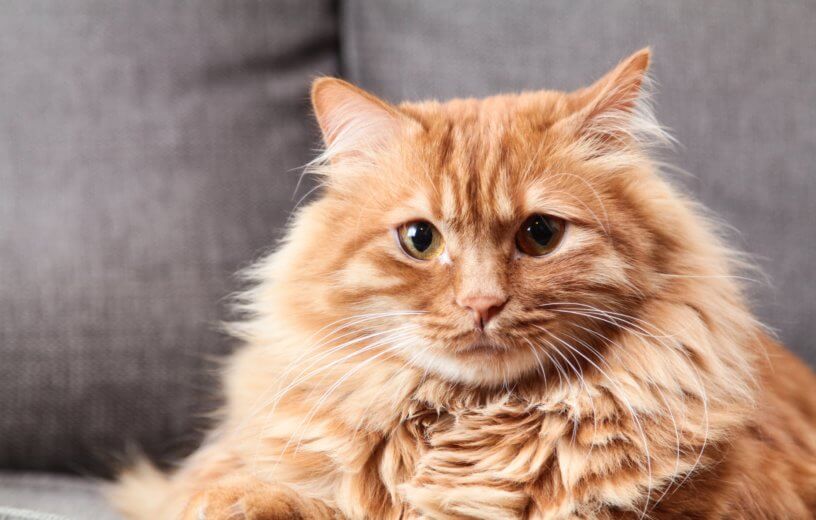GUELPH, Ontario — The term “fat cat” is thrown around quite frequently, but usually not to describe actual cats. Well, a new study out of the University of Guelph finds that cats are indeed getting fatter. According to researchers, cats continue gaining weight well into adulthood, and the average weight of a neutered, adult domestic cat has increased over the past twenty years or so.
Most people assume that cats, on average, maintain a steady weight after maturing out of their kitten phase, but this new research indicates that cats’ weights continue to rise until they are around eight years old.
The authors analyzed data on 54 million weight measurements taken from over 19 million cats, the largest feline data pool ever used in a study, to try and produce some more definitive baseline information on what a healthy cat’s weight projection throughout life should look like.
“As humans, we know we need to strive to maintain a healthy weight, but for cats, there has not been a clear definition of what that is. We simply didn’t have the data,” explains Prof. Theresa Bernardo in a statement. “Establishing the pattern of cat weights over their lifetimes provides us with important clues about their health.”
Researchers found that male cats typically reach higher overall weights than females, and spayed / neutered cats were more likely to pack on extra pounds. Among the four most common purebred breeds (Siamese, Persian, Himalayan and Maine Coon), cats usually hit their heaviest between six and 10 years old. However, other cat breeds seemed to be their heaviest at eight years old.
One of the study’s most interesting findings is that the average weight of an eight-year old neutered domestic cat rose by just over half a pound between 1995 and 2005, and has stayed steady through 2015.
“It might not seem like much but half a pound is still a significant amount for a cat,” comments lead author Adam Campigotto. “We do have concerns with obesity in middle age, because we know that can lead to diseases for cats, such as diabetes, heart disease, osteoarthritis and cancer,”
The study asserts that just like humans look after their body weight, its important for cat owners to keep their feline friends’ weights in check.
“Cats tend to be overlooked because they hide their health problems and they don’t see a vet as often as dogs do. So one of our goals is to understand this so that we can see if there are interventions that can provide more years of healthy life to cats,” Campigotto says.
The study’s authors say they are already looking into additional studies on how to reduce weight gain in cats, including using an automated feeder that would release portioned meals throughout the day.
The study is published in the Journal of the American Veterinary Medical Association.
